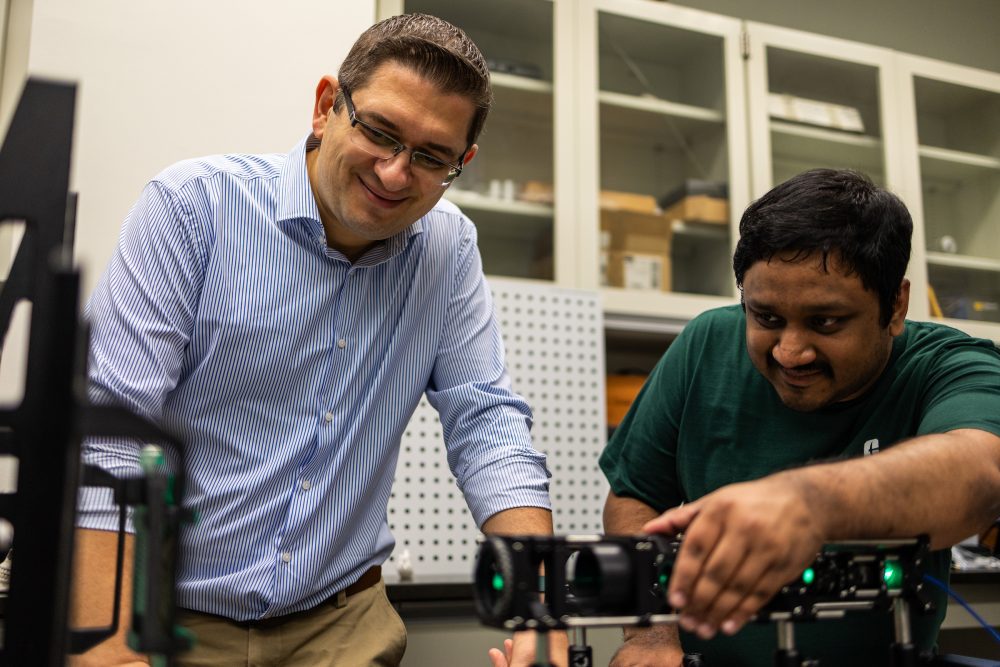M.S. in Mechanical Engineering

At the Master’s level, the program is broad based, allowing students to develop expertise in a number of areas including metrology, manufacturing, bioengineering, motorsports and automotive engineering, energy engineering, thermal and fluid sciences, solid mechanics, materials engineering and science, and mechanical control and instrumentation. The M.S.M.E. program requires successful completion of 30 credits at the graduate level. Both thesis and non-thesis options are available.
Students must decide on their M.S.M.E. option by the end of the second semester, through submission of their Plan of Study.
Students have the flexibility of selecting their own courses with the approval of the graduate advisor. The faculty contact assigned at the time of admission serves as the advisor for the first two semesters or until a permanent advisor is formally selected by the student at the time the Plan of study is submitted.
Research
Research within the Department of Mechanical Engineering and Engineering Science is focused in six primary areas: advanced manufacturing and metrology, computational mechanics and materials, motorsports engineering, bioengineering, thermal fluids science, and dynamics and controls. (Links list faculty, active research areas and courses typically offered.)
Within these areas, students pursue a variety of research topics that address design, manufacturing, metrology, thermal sciences and fluid mechanics, solid mechanics, biomedical engineering, materials engineering and science, and mechanical control and instrumentation. Students are encouraged to consider the variety of research and their interests as they progress in their degree program, choose an advisor, and develop their program of study.
If a specific focus area is not desired, it is expected that each student would select the majority of their courses from the focus area that they are interested in. Students are advised to discuss course selections with their advisor to maximize the benefits from the program.
International students must register for 9 credits in each semester, until their credit requirements are over, to maintain full-time student status.
For further assistance, contact:
Dr. Terry Xu, Associate Chair for Graduate Programs (megrad@charlotte.edu)